Definition, Stages, Assessment, Assessment, Principles, Factors influencing growth, Growth Chart - Growth and Development of Child | 12th Nursing : Chapter 5 : Child Health Nursing
Chapter: 12th Nursing : Chapter 5 : Child Health Nursing
Growth and Development of Child
Growth and Development
Growth refers to an increase in size and development refers to
maturation of function. Starting from conception, growth and development is
influenced by various factors both inside the uterus and external environment.
Growth and development begin at conception and end at maturity.
Definition of growth and development
Growth is defined as an increase in size of an individual. This
increase in size is due to increase in the number and diameter of the cells.
Development denotes the functional maturity of the child. It is
the mental maturation with acquisition of skills.
Though growth and development are not the same, they are assessed
simultaneously. They are unique characteristics of children and any problem in
this process at any stage can result in deviation of growth and /or
development.
Stages of Growth
The following are the stages of growth in children
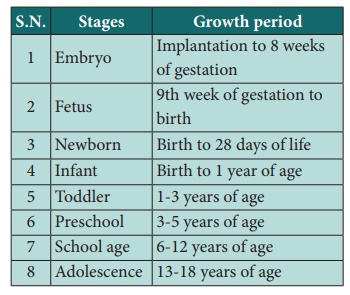
Assessment of growth
·
Physical anthropometry
(weight, height, circumferences of head, chest, abdomen and pelvis)
·
Assessment of tissue
growth (skin fold thickness and measurement of muscle mass)
·
Bone age (x ray of the
bone)
·
Dental age (by counting
the number of erupted teeth)
·
Biochemical and
histological means.
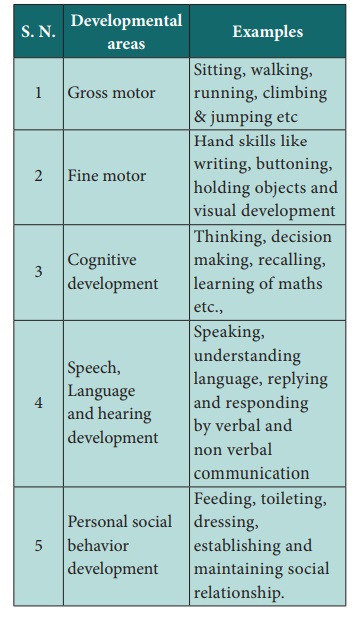
Assessment of development
Development can be assessed under various categories. They are
·
Motor (gross and fine
motor) development
·
Speech, Language and
hearing development
·
Cognitive development
·
Personal social behavior
development
Principles of growth and development
·
Growth is a continuous
process
·
Growth is an orderly
process
·
There is period of rapid
growth and slow growth
Growth follows a sequence
·
Growth proceeds from
general to specific
·
Head grows faster than
the body and extremities
·
Growth pattern is same
for all children
·
Rate of development
varies from child to child
·
Boys and girls grow
differently
Factors influencing growth
Growth is influenced by interaction of both genetic and
environmental factors. Children generally grow to their genetic height
potential with little outside assistance. Parents have to provide best possible
environment for their growth to take place.
Genetic factors: In general, Asians tend to be smaller
than Europeans while Afro Americans are taller than white Americans
Parental influence: Tall parents tend to have taller
children.
Gender: Boys tend to be taller and heavier than girls
Genetic disorders: Chromosomal disorders such as down
syndrome, Turner syndrome and genetic mutations can adversely influence growth.
Prenatal (before delivery) growth: The size at birth
is primarily influenced by maternal health and uterine environment. Maternal
health condition affects the growth of the foetus. Certain diseases like
diabetes, hypertension during pregnancy affects the growth in the uterus.
Post natal (after delivery) growth
Nutrition: Lack of nutrition during first
two years of life after birth has remarkable influence on the growth
of the child.
Chronic illnesses in children: Congenital heart diseases, recurrent
pneumonia, persistent diarrhea, tuberculosis leads to growth failure.
Hormonal influences: Growth hormone and thyroxin deficiency
and sex hormone deficiency during puberty affects growth.
Emotional factors: Emotional deprivation, anxiety may affect
the child’s growth.
Developmental mile stones in gross motor functions
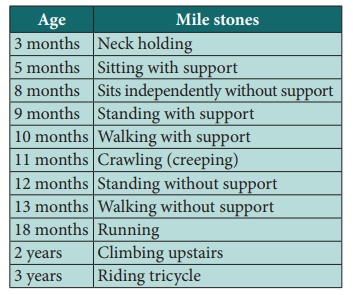
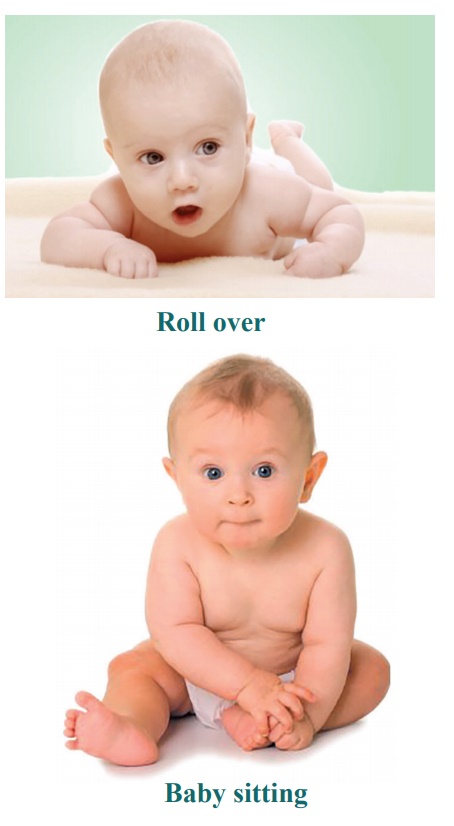
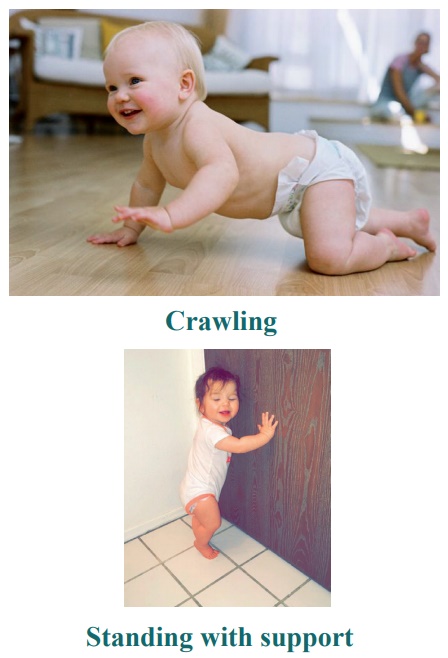

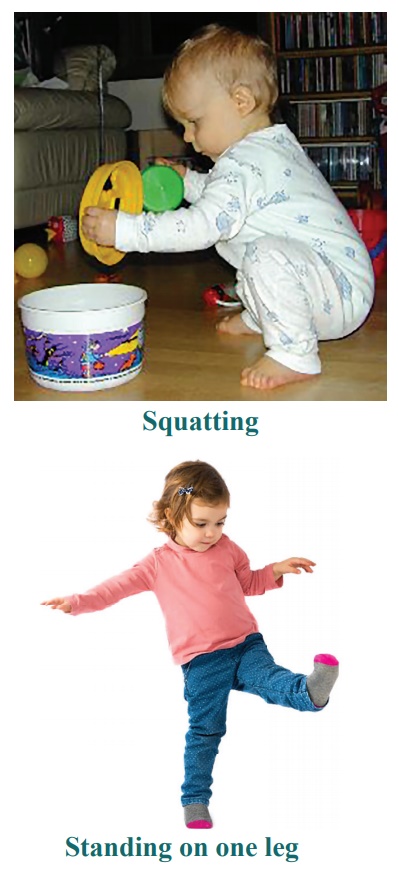
Growth Chart
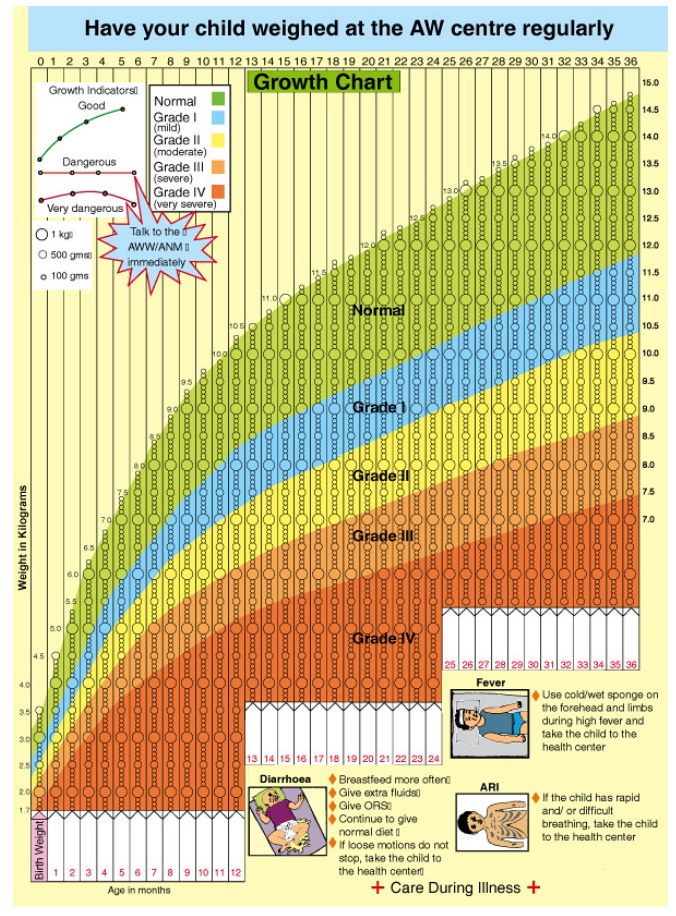
WHO growth chart
Growth chart is developed by Prof. David Morley. It
is a visual display of child’s growth and development. In growth chart,
child’ weight is recorded periodically and a curve is drawn. A flat curve
indicates that the child’s growth is arrested or slowed down. There are
reference curves printed in the growth chart. One has to compare the child’s
growth curve with the reference curve to detect normalcy or any deviation.
There are Height for age and Weight for height chart is available. The various
types of growth chart available in India are
·
WHO growth chart
·
Govt. of India Growth chart
·
ICDS growth chart
Uses of growth chart
·
To ensure normal growth
·
To identify any deviation in growth
·
To assess the health status
·
To teach mother about the importance of proper care
·
To motivate the mother to promote normal growth
Related Topics